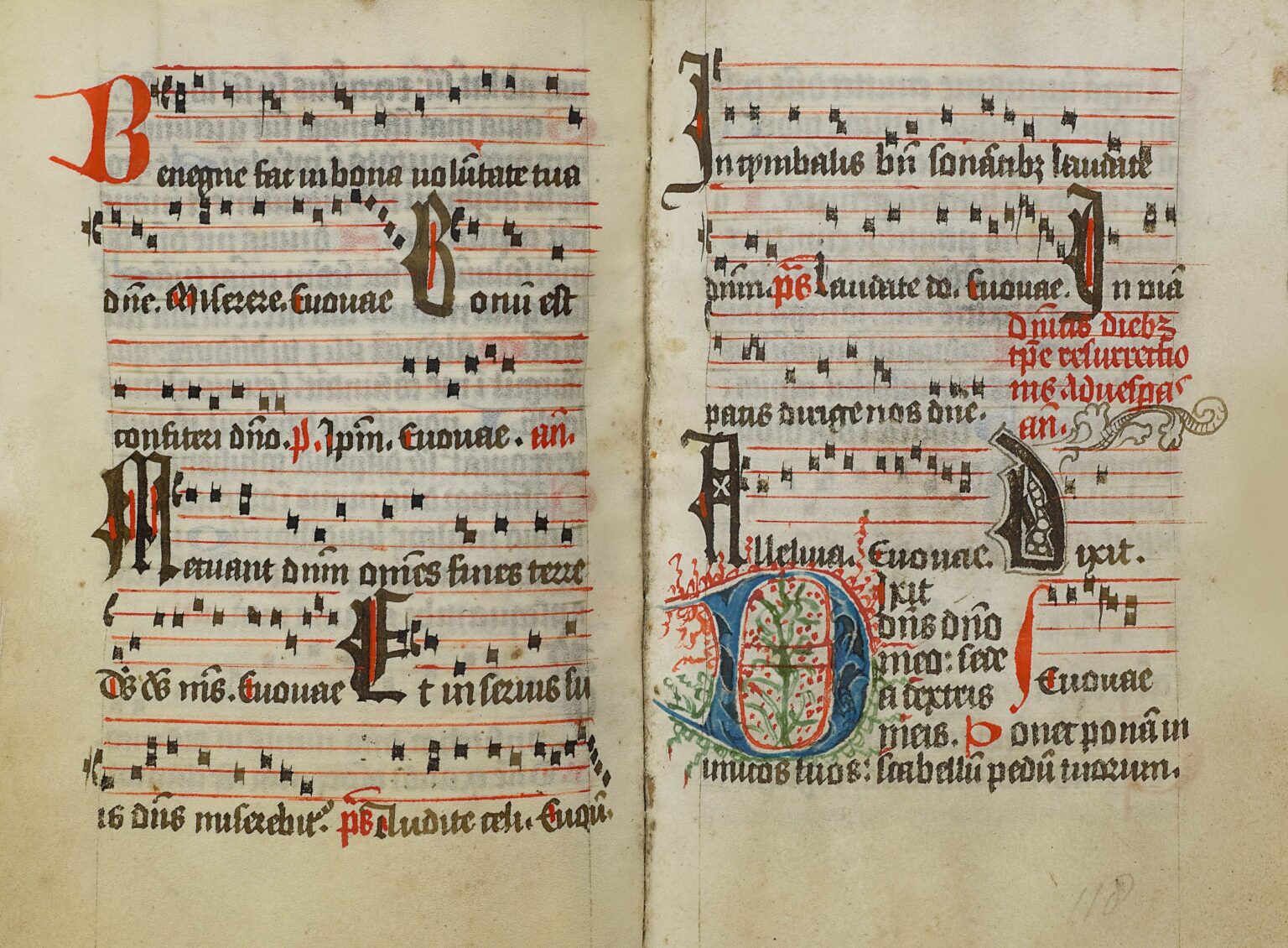22 April 2024
The Psalms | Year of Prayer 2024
By Joey Belleza, PhD (Cantab.)
In the previous reflection, we considered the collects of the Roman Rite and how they are structured to express the four parts of prayer. Now, we can speak briefly about the Divine Office or Liturgy of the Hours. We can first note how the closing prayer of each hour is the same as the collect for the Mass of the day, such that the four parts of prayer often form an explicit aspect of the recitation of the Hours. However, we can go beyond the collects and think about the defining characteristic of the Hours: psalmody.
The recitation of the Psalms throughout the day (and the traditional practice of chanting all the psalms in a week) not only links us with the Jewish faith into which Christ, his Mother, and the Apostles were born; it moreover gets us thinking about why the Church continues to make the psalms a central part of her daily prayer. But whether we pray the Psalms according to the four-week cycle of the modern Liturgy of the Hours, or if we follow the ancient one-week cycle of the old Divine Office, it remains true that the Psalms govern the daily rhythm of the Church’s life. It is a timeless and in inexhaustible source of inspiration for all Christians. While countless books have already been written on this matter, here we can only make a brief indication.
There is no human emotion that isn’t addressed by a psalm. From joy in victory, exaltation in God’s glory, gratitude, and praising the beauty of the natural world, to dejection in defeat, depression, abandonment, and rage, and the psalms run through the full spectrum of human affectivity. So central were the psalms to the daily life of Christ and the Apostles that they often cite the psalms to make a point. Upon seeing the Lord drive the moneychangers from the Temple, Saint Peter paraphrased Psalm 69: “Zeal for your house will consume me.” When the chief priests and scribes were indignant at the praises of children on Palm Sunday (who themselves were echoing the cries of “Hosannah” from Psalms 118 and 148), Christ rebuked them for not knowing the meaning of Psalm 8: “From the mouths of children and suckling babes you have ordained praise, on account of your adversaries, to silence the enemy and avenger.” Finally, on the cross, one of the Lord’s final words, “My God, my God, why have you forsaken me” comes from the beginning of Psalm 22 which, although beginning with a cry of dereliction, ends with a statement of invincible hope and confidence in God’s power.
In this Year of Prayer, let us rediscover the glory of the psalms, to which the Church returns week after week, month after month, to address the breadth of human experience as we encounter the joys and sorrows which mark our earthly life.

